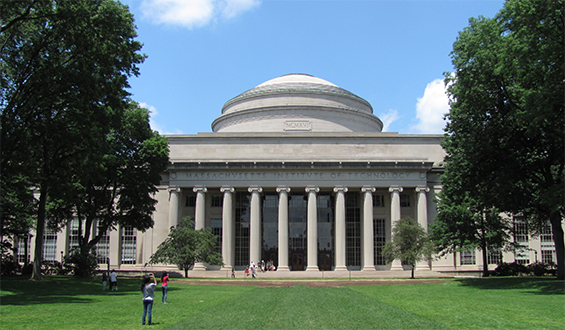
Massachusetts Institute of Technology has announced the creation of its first Chinese supply chain education center in 2016, which is located in Ningbo, home to the busiest port in the world.
MIT is working with the Ningbo local government in an effort to establish the Ningbo Supply Chain Innovation Institute China, or NSIIC. Teaching staff have already begun to be recruited, with undergraduate student recruitment expected to begin in 2017.
Plans are also in the works for a doctoral degree program, in addition to professional courses that will reinforce ties with local corporate partners.
The center will be the sixth such institute to be run by MIT’s Center for Transportation and Logistics, and the first of its kind in China. Other centers are located in Colombia, Malaysia, Luxembourg, Spain, and the United States.
A stall in trade is currently ongoing in China, as is an increase in the push to improve upon logistics in an effort to attract more manufacturing, causing the country to make a hurried push to overcome logistics challenges, writes Loretta Chao for The Wall Street Journal.
Leaders of the project believe it will one day become the largest center in MIT’s network. No official word has been offered pertaining to the total value of the investment.
Located on the coast of the East China Sea, the Ningbo-Zhoushan Port became the largest port in the world in 2012 in terms of cargo tonnage, beating out Shanghai. That year the port handled 774 million metric tons of volume. Ningbo is expected to make use of MIT CTL’s experience as a center for supply chain knowledge creation in order to create a research institute.
“The Government of Ningbo is eager to begin this partnership with MIT,” says the Mayor of Ningbo, Lu Ziyue. “Ningbo is already a global leader in cargo logistics, and the new institute will be at a global vanguard of supply chain innovation and education. The continual flow of supply chain ideas and leaders will enable companies to further expand and diversify the economic growth of our region.”
According to MIT President L. Rafael Reif, supply chain researchers that are connected through the MIT SCALE network have a thorough understanding of how best to move goods and services around the world quickly and efficiently. Reif went on to say that this ability is important for society, allowing for everything from the acceleration of innovations to the reduction of carbon emissions. Because Ningbo has such a large-scale shipping operation, it is expected to quickly become a key player within the MIT SCALE network.
The building for NSIIC has already been established with renovation plans already underway. The NSIIC will be an independent, degree-granting academic institution that will be established under Chinese law.
Graduate students within SCALE Network centers have access to the shared knowledge created by the collaboration as well as the ability to participate in global research projects. In addition, they take part in the school’s global educational exchange in which they travel to other centers to learn with other Network students. “In essence, our SCALE Network educational model mirrors the global structure of the multinational companies that hire our graduates,” said Yossi Sheffi, director of MIT CTL and the SCALE Network.




